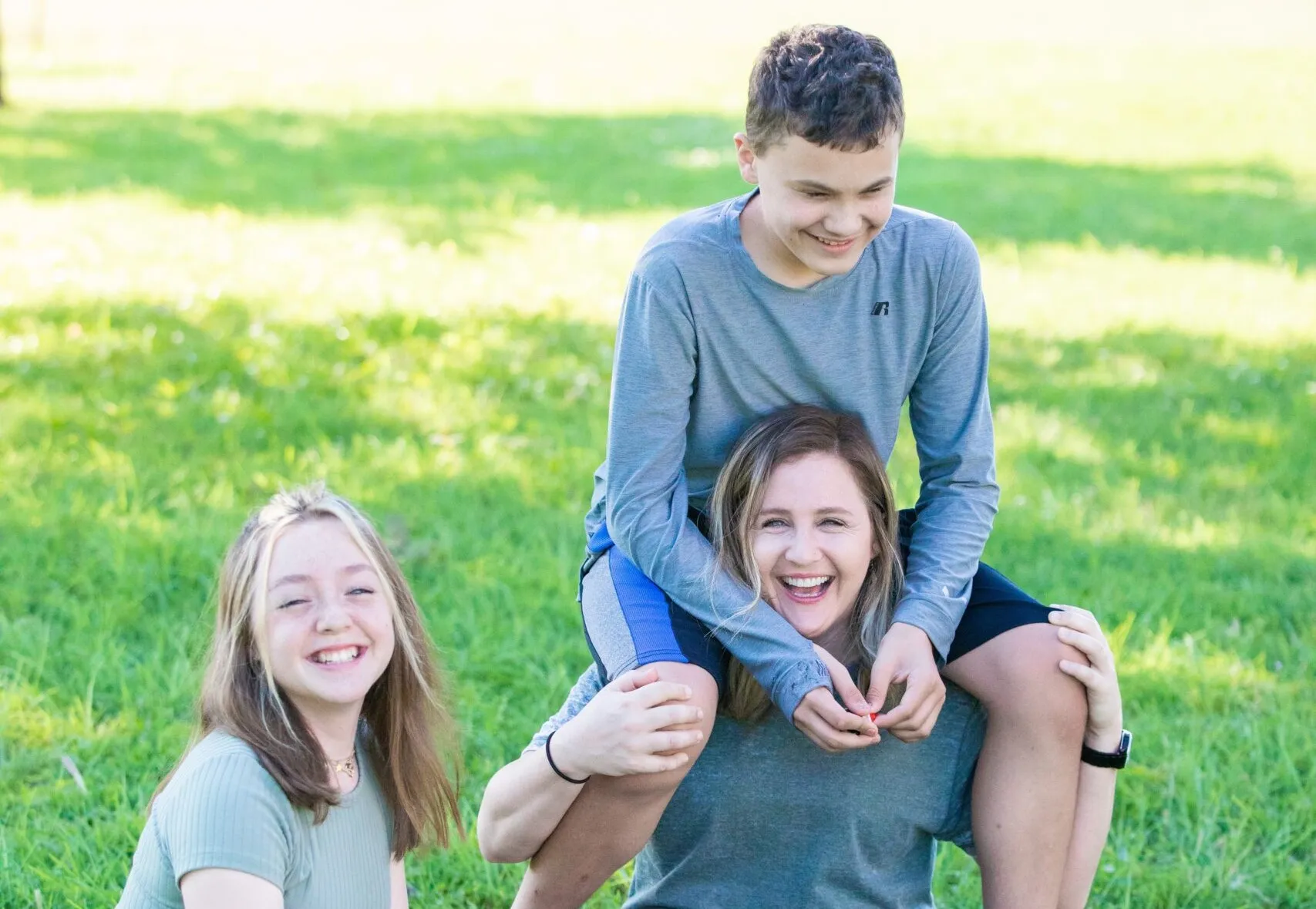Oklahoma sends a growing number of kids with complex needs out of state for treatment

The Frontier, by Kayla Branch, February 5, 2024: The state lacks options for kids with developmental disabilities and mental health needs. Oklahoma spent more than $5 million to send 49 kids out of state for treatment in the past year.
Amber Boyer spent early mornings last spring crawling out of her bedroom window and into her garage to make breakfast and gather medications for her then 14-year-old son Davin.
She’d strap on a rugby-style helmet to protect her head and hair when she went back inside her Kay County home to give Davin his meals. Davin has autism and a speech delay. For the last year, he’s had increasingly aggressive behaviors, Boyer said.
Davin started complaining about headaches in 2022. He’d need to be sedated for any medical testing to figure out why the headaches were happening. But few doctors in the state do sedation before a procedure like an MRI, Boyer said. Finding care was nearly impossible.
Davin’s behaviors grew increasingly aggressive as his headaches continued. He was biting, pulling hair and breaking doors. By early 2023, Davin was suspended for several days from his public school. He eventually refused to attend school in person. Boyer took off almost four weeks from work to stay home with him as she looked for treatment. When Davin became a serious risk to himself or others, she took him to the emergency room. He visited hospital emergency rooms seven times in six months.
As Davin’s behaviors escalated, Boyer moved her teenage daughter to her parents’ home, and she moved into the garage, eventually taking medical leave from work. She spent her days making calls to mental health providers, doctors, her attorney, the local school district and the Oklahoma Autism Network, trying to find someone who could help.
Davin, right, smiles for a photo with his mom and grandfather. Photo provided.
Boyer could only stay inside her house at night while they both slept — her behind a steel-plated door. From the garage, she watched Davin through cameras inside the house to make sure he was safe.
Davin has been on Oklahoma’s waiting list for developmental disability services for around a decade. Boyer has relied on private insurance and Oklahoma’s Medicaid program to help pay for his care in the meantime.
Struggling to find care is common for parents with children who have dual needs, or an intellectual or developmental disability and a mental or behavioral health challenge.
Demand for mental and behavioral health care has spiked in recent years amid a staffing shortage, leaving some kids with complex needs behind as providers pick and choose which clients they can take on. The state has ramped up some spending on mental health care and developmental disability services but the investments haven’t been enough to allow providers to expand or feel ready to accept more youth with dual needs, officials say.
Without better access to care, advocates say children with dual needs are more likely to end up involved with the child welfare or criminal justice system, or be sent to costly out-of-state facilities away from their families. In the 2023 fiscal year, Oklahoma spent over $5 million to send 49 kids out of state for treatment, according to data from the Oklahoma Health Care Authority. Five years ago, the state only paid for two kids to leave for treatment. Some children are likely left out of those numbers.
Read more from The Frontier here.




